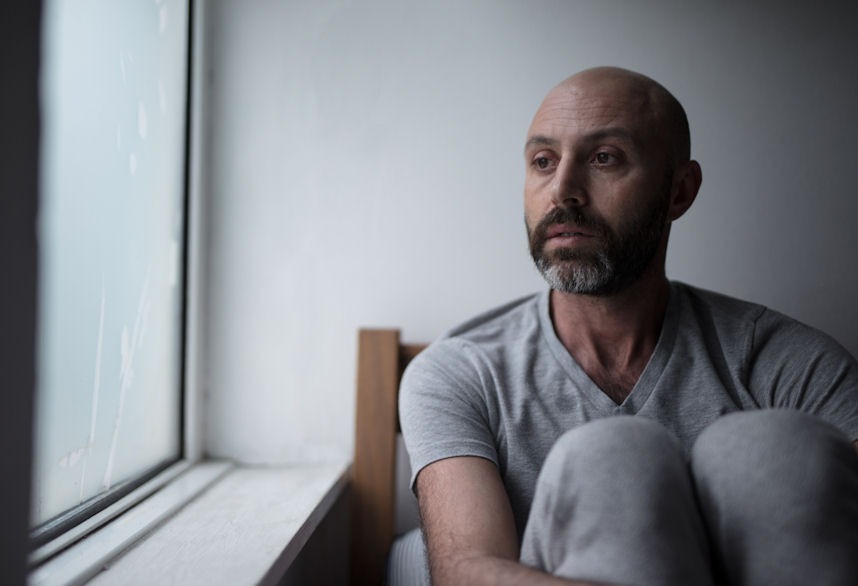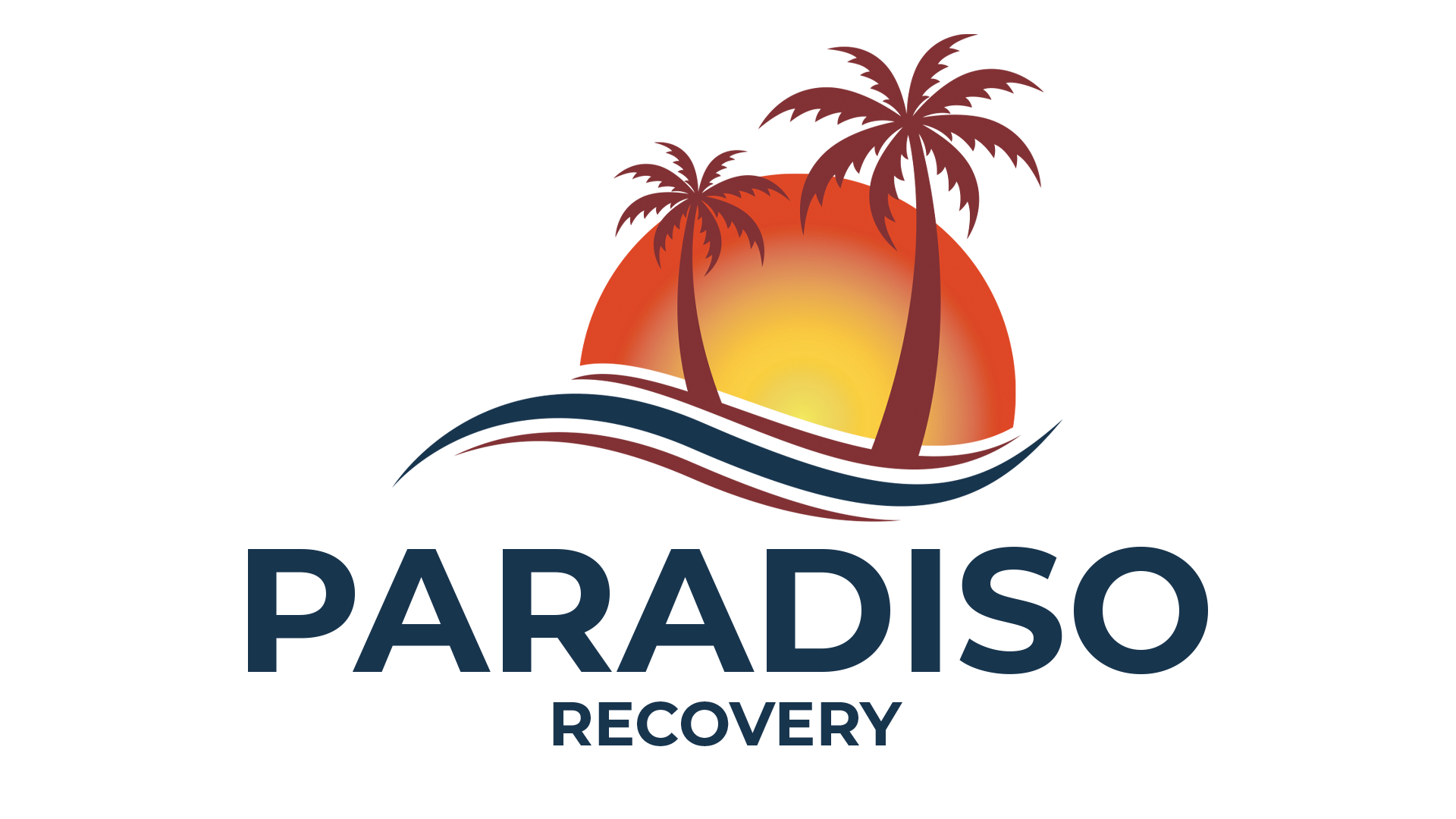Addiction and Anxiety Treatment in Ventura County
Addiction and Anxiety Treatment in Ventura County
Living with anxiety can feel like carrying a heavy weight you can’t put down. Anxiety can impact every aspect of a person’s life, including relationships, work, and overall well-being. For many, that weight becomes too much to bear alone.

Substances like alcohol, benzodiazepines, or opioids can become a temporary escape for someone with an anxiety disorder. But what can start as self-medication for a temporary feeling can evolve into a complex cycle of anxiety and addiction that requires comprehensive, compassionate treatment.
Addiction is not a flaw of virtue or strength. Sometimes it’s the result of attempting to cope in an unhealthy way. At Paradiso Recovery in Ventura County, we specialize in helping individuals break free from this cycle and rebuild their lives with expert dual diagnosis care. We offer a range of anxiety treatment programs and treatment options, including traditional therapy, intensive outpatient programs (IOP), and group therapy. Local treatment programs often provide a personalized approach, tailoring care to each patient’s unique needs.
What is Anxiety?
Anxiety is a natural human response to stress or perceived danger. It’s what triggers the body’s fight, flight, freeze, and fawn responses. This emotion works to keep us alert and safe.
But for people with anxiety disorders, this response becomes chronic and often overwhelming. Rather than being tied to real threats, the body remains in a heightened state of fear even in safe environments. This constant state of distress can interfere with everyday activities and relationships, and it’s advised that people seek treatment to prevent harm to their quality of life.
Anxiety disorders are among the most common mental health conditions in the United States. According to the National Institute of Mental Health (NIMH), around 31% of U.S. adults experience an anxiety disorder at some point in their lives. These conditions come in many forms, including:
- Generalized Anxiety Disorder (GAD): Defined by ongoing, excessive worry and tension that may occur without identifiable triggers, often accompanied by restlessness, fatigue, and trouble concentrating.
- Panic Disorder: Characterized by recurrent panic attacks (sudden surges of intense fear or discomfort) that often present with physical symptoms like heart palpitations, sweating, or dizziness.
- Social Anxiety Disorder: Marked by overwhelming fear of social judgment or humiliation, often leading to avoidance of social interactions, work, school, or relationships.
- Specific Phobias: Irrational fear of particular objects or situations, such as flying, heights, or snakes.
- Obsessive-Compulsive Disorder (OCD): The experience of unwanted, intrusive thoughts (obsessions) and repetitive behaviors (compulsions).
- Post-Traumatic Stress Disorder (PTSD): A condition triggered by experiencing or witnessing a traumatic event, often featuring flashbacks, nightmares, and heightened anxiety.
Anxious thoughts and negative thought patterns are common features of anxiety disorders, and they can interfere with daily functioning and interpersonal relationships. A deeper understanding of one’s anxiety and its triggers is essential for effective treatment and long-term recovery.
Each of these disorders affects the brain’s stress regulation systems differently. Anxiety disorders can also have physical consequences, including gastrointestinal problems, headaches, muscle tension, and disrupted sleep patterns. These can further reduce an individual’s overall sense of well-being and resilience. But all anxiety disorders can significantly impact quality of life, especially when compounded by substance use and abuse.
How Anxiety Relates to Addiction
Managing anxiety is crucial to breaking the cycle of self-medication and substance use. Using addictive substances may temporarily reduce anxiety symptoms by altering brain chemistry and dampening the body’s stress response. However, the brain quickly adapts to the presence of these substances. This can lead to tolerance and dependence, and eventually the person may need high amounts of the substance just to feel normal.
Nearly 1 in 5 people with an anxiety disorder are also diagnosed with a substance use disorder. Developing healthy coping strategies is essential to prevent reliance on substances and support long-term recovery.
What is Dual Diagnosis?
Dual diagnosis refers to the presence of both a mental health condition and a substance use disorder in the same person. Individuals with a dual diagnosis require integrated treatment that addresses both the substance use and the mental health issues at the same time. A comprehensive treatment program for dual diagnosis includes anxiety therapy and integrated care, ensuring that both conditions are managed together for better outcomes. Treating substance use without treating their mental health concerns (or vice versa) can lead to higher rates of relapse after treatment.
Dual diagnosis care involves a multidisciplinary approach that can include therapists, psychiatrists, medical providers, and support staff working together to create a personalized approach and treatment program tailored to each individual’s needs. The individual learns how the two conditions work together and interact, allowing them to develop coping strategies and effective coping strategies for managing both anxiety and substance use. Programs that integrate psychological therapy and behavioral health strategies are especially effective for dual diagnosis patients. Dual Diagnosis Treatment in Ventura County, CA supports long-term recovery and improved mental health outcomes.
Addiction and Anxiety Treatment in Camarillo, California
At Paradiso Recovery, we offer a range of anxiety treatment programs and treatment options tailored to individual needs. Ventura County offers effective anxiety treatments, and our approach incorporates mindfulness practices to help individuals focus on the present moment. Treatment plans are designed for individual needs, with the aim of enhancing emotional and mental well-being through evidence-based treatments.
Cognitive Behavioral Therapy (CBT)
Cognitive Behavioral Therapy, also known as CBT, is considered one of the most effective approaches for treating anxiety and addiction. It can help individuals identify and challenge distorted thinking patterns, recognize triggers, and develop healthier coping mechanisms. CBT teaches clients how to reframe negative thoughts and make empowering behavioral choices, which can help reduce both anxiety symptoms and the impulse to use substances.
Dialectical Behavior Therapy (DBT)
Originally designed for treating borderline personality disorder, dialectical behavior therapy (DBT) emphasizes emotional regulation, distress tolerance, mindfulness, and interpersonal effectiveness. It can be particularly helpful for individuals dealing with intense emotions, self-destructive behaviors, or who have a history of trauma.
Eye Movement Desensitization and Reprocessing (EMDR)
For those whose anxiety is rooted in trauma, EMDR therapy can offer a powerful pathway to healing. This therapy modality uses guided eye movements to help the brain reprocess traumatic memories and reduce their emotional weight. EMDR can help to significantly lower anxiety levels and reduce the frequency of triggers, which can make it highly complementary with exposure therapy.
Group Therapy
Isolation is a common symptom of both anxiety and addiction. Group therapy offers a space for connection, understanding, and shared healing. Individuals can hear the stories of others with similar experiences and learn that they’re not unique in struggling with problems related to addiction and/or anxiety. Facilitated by licensed therapists, group sessions can cover topics like relapse prevention, emotional expression, healthy boundaries, and relationship repairing and building.
Family Therapy
Addiction and mental health disorders don’t just affect the individual. The effects of each can ripple through families and affect the entire dynamic. Family therapy sessions help individuals and their loved ones understand each other’s experiences, rebuild trust, and establish healthy communication within the often complicated dynamics. When families heal together, recovery outcomes are stronger and more sustainable.
Many individuals with anxiety and addiction have felt disconnected from themselves for years. Anxiety treatment programs can help to restore that inner connection and provide outlets for stress relief and emotional release. Recovery from addiction isn’t just about undergoing detox, especially for those dealing with anxiety disorders. It’s about building a new life of sobriety that doesn’t rely on using substances for coping with challenges.
Signs of Substance Use Disorder (SUD)
Recognizing the signs of substance use disorder is a crucial first step in seeking help. Common symptoms (regardless of the addictive substance) include:
- Using more of the substance than intended, or for longer than intended
- Unsuccessful efforts to cut down or stop using
- Spending a lot of time obtaining, using, or recovering from substance use
- Cravings or intense urges to use
- Neglecting responsibilities at work, school, or home
- Continued use despite interpersonal problems or health issues
- Withdrawal symptoms when not using
If any of these symptoms are present, it’s important to consider an evaluation for substance abuse disorder.
Contact us right now for a free, confidential insurance verification
Free Insurance Verification
The Importance of Dual Diagnosis Treatment
Anxiety can lead to substance use, and substance use can worsen anxiety symptoms (especially during withdrawal or between uses). Without treating both components, long term recovery can be incredibly difficult to sustain. Effective anxiety treatment programs are designed to support sustained recovery by focusing on long term anxiety management, helping individuals build skills and strategies for lasting wellness.
At Paradiso Recovery, we offer dual diagnosis treatment programs that create space for healing the mind, body, and spirit. This includes not just addressing the chemical dependency, but working through the psychological and emotional triggers that led to the substance use. By stabilizing both conditions simultaneously, individuals can be empowered to develop new ways of coping and reclaim their lives from addiction.
Building strong support networks and involving family and loved ones in the recovery process is crucial for recovery from addiction and co-occurring anxiety disorders. Holistic approaches to healing, including mindfulness practices, are also essential for managing anxiety and supporting long-term recovery.
Heal From Addiction and Anxiety at Paradiso Recovery
Paradiso Recovery offers a sanctuary for those ready to break free from the grip of anxiety and addiction. Our holistic approach to dual diagnosis treatment ensures that each client receives individualized care rooted in compassion and dignity. From the first phone call to the final therapy session, our team is committed to walking with you on your journey to healing.
Located in beautiful Southern California, our center provides a peaceful, luxurious environment where clients can focus on recovery. We have the tools, the team, and the heart to help you transform your life.
You don’t have to live in fear anymore. Hope and healing are possible and it all starts with a single step. Contact us today or fill out our confidential contact form to speak with an admissions specialist.
